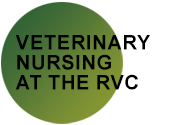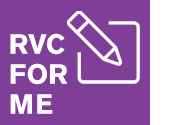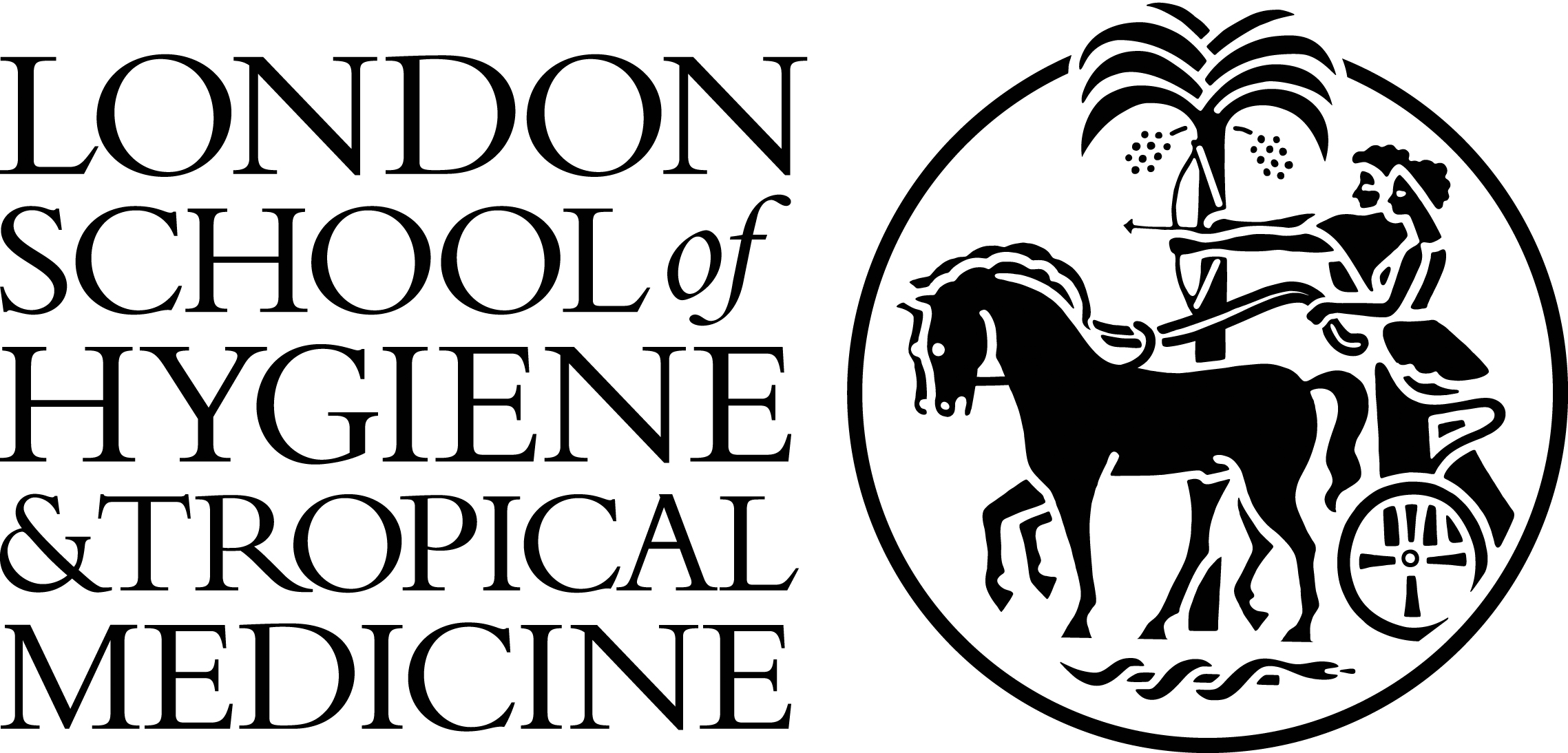One Health: ecosystems, humans and animals
What is the MSc in One Health: ecosystems, humans and animals?
Changing environmental, social and agricultural conditions are a threat to animal and human health and welfare.
Many infectious diseases can pass between animals and humans, while food production, human diet and community stability are harmed by diseases that infect livestock and wildlife. Emerging veterinary infectious diseases and human diseases, such as highly pathogenic avian influenza viruses, emphasise the threat posed by these issues.
The One Health approach recognises the relationship between health and disease at the human, animal and environment interfaces and has become an important focus in both medical and veterinary science. It promotes a “whole of society” treatment of health hazards and a systemic change of perspective in the management of risk.
If you are interested in One Health and the control of infectious disease (particularly in the developing world), then this unique course could be for you. We welcome applications from individuals with a background in public health, veterinary sciences, animal or biological sciences, social and environmental sciences, ecology and wildlife health. If you are interested in this field, but do not have the relevant background, please speak with the course directors who can consider such cases on an individual basis.
The course is delivered jointly by the RVC, University of London and the London School of Hygiene and Tropical Medicine (LSHTM).
What will I learn?
The course will provide you with:
- A comprehensive foundation on the principles of diseases in the context of socio-ecological systems, global health and food safety
- Knowledge and skills in relation to One Health methodologies, transdisciplinary interactions and in using a systems approach.
At the end of the course you will be able to:
- Understand the One Health concept and approach problem solving using a trans-disciplinary methodology
- Understand the origin, context and drivers of infectious disease at the human, animal and environment interface
- Evaluate impacts of multi-host infections on human, animal and ecosystem health and economics directly, or indirectly, via food, disease vectors or the environment.
- Develop a One Health systems approach to complex disease issues in monitoring, surveillance, diagnosis, prevention and control
- Critically review published literature
- Design a research project
Programme delivery
The MSc may be completed full-time in one year or part time over two years, and consists of eight taught modules and a research project.
The course starts in September each year and you will split your time between the RVC and LSHTM. Students then undertake a four-month research project on a topic of their choice.
Full Time
Term 1
There is a two-week orientation period that includes an introduction to studying at the Royal Veterinary College and London School of Hygiene and Tropical Medicine, followed by four compulsory modules:
- Foundations of One Health (RVC) (Tuesdays)
- Infectious Disease Emergence and Control (RVC/LSHTM) (Wednesdays & Fridays)
- Principles of Epidemiology and Surveillance (RVC) (Mondays)
- Research Skills and Statistical Analysis (RVC) (Thursdays)
Terms 2 and 3
All students take three compulsory modules:
- Economics of One Health (RVC) (Monday-Wednesday lunchtime for first half of term)
- One Health: Situation Analysis and Systems Thinking (RVC) (Wednesday afternoon to Friday for first half of the term)
- Medical Anthropology and Public Health (LSHTM) (Monday to Wednesday lunchtime for second half of the term)
In addition, students choose a fourth module from the following which will run from Weds afternoon to Friday for the second half of the term:
- Environmental Epidemiology (LSHTM)
- Epidemiology of Infectious Diseases (LSHTM)
- Globalisation and Health (LSHTM)
- Spatial Analysis in Epidemiology (RVC)
- Vector Biology and Vector-Parasite Interactions (LSHTM)
Part Time
For part-time students, there are two available options. Each option requires the completion of 4 modules in Year 1 and 4 modules in Year 2, followed by the Research Project.
Option 1:
There is a two-week orientation period that includes an introduction to studying at the Royal Veterinary College and London School of Hygiene and Tropical Medicine, followed by completion of the following four compulsory modules in Year 1:
- Foundations of One Health (RVC) - Term 1 (Tuesdays)
- Infectious Disease Emergence & Control (RVC/LSHTM) - Term 1 (Wednesdays & Fridays)
- Economics of One Health (RVC) - Term 2 (Monday-Wednesday lunchtime for first half of term)
- Medical Anthropology and Public Health (LSHTM) - Term 2 (Monday to Wednesday lunchtime for second half of the term)
Requires completion of the following 4 Modules in Year 2:
- Principles of Epidemiology and Surveillance (RVC) - Term 1 (Mondays)
- Research Skills & Statistical Analysis (RVC) - Term 1 (Thursdays)
- One Health: Situation Analysis and Systems Thinking (RVC) - Term 2 (Wednesday afternoon to Friday for first half of the term)
- Plus 1 x choice module - Term 2 (Wednesday afternoon to Friday for second half of the term)
Option 2:
There is a two-week orientation period that includes an introduction to studying at the Royal Veterinary College and London School of Hygiene and Tropical Medicine, followed by completion of the following four compulsory modules in Year 1:
- Principles of Epidemiology and Surveillance (RVC) - Term 1 (Monday to Wednesday lunchtime for first half of term)
- Foundations of One Health (RVC) - Term 1 (Tuesdays)
- Infectious Disease Emergency and Control (RVC) - Term 1 (Wednesdays and Fridays)
- Research Skills & Statistical Analysis (RVC) - Term 1 (Thursdays)
Requires completion of the following 4 Modules in Year 2:
- Economics of One Health (RVC) - Term 2 (Monday to Wednesday lunchtime for first half of the term)
- One Health: Situation Analysis and Systems Thinking (RVC) - Term 2 (Wednesday afternoon to Friday for first half of the term)
- Medical Anthropology and Public Health (LSHTM) - Term 2 (Monday to Wednesday lunchtime for second half of the term)
- Plus 1 x choice module - Term 2 (Wednesday afternoon to Friday for second half of the term)
Research Project
The Research Project runs in Term 3 from April through to the end of July. Here are some examples of the research projects undertaken by previous MSc One Health students:
- The effects of environmental risk factors on seasonal bionomics of malaria vectors in Burkina Faso.
- Climate change, child marriage and HIV: is it possible to infer a likely increase in HIV incidence for girls >18 in climate vulnerable, traditionalist, sub-Saharan African communities? A One Health case study.
- Financial analysis and potential implications of financing with the livestock feed sector.
- Living on the edges: Understanding WaSH behaviour at the human-gorilla interface, Bwindi Impenetrable National Park, Uganda.
- An investigation into the economic cost of Foot-and-Mouth Disease in regions with outbreaks and endemic disease, and identification of key differences across geographical regions and species.
- Factors affecting the incursion and establishment of Usutu virus in the UK.
- Comparative analysis of stocked antibiotic availability in human and veterinary antibiotic providers across Uganda Tanzania and India.
- Sequencing and analysis of a partial Paramyxoviridae genome obtained from formalin-fixed-paraffin-embedded avian tissue originating in 1940.
- Antibiotic usage and environmental contamination as drivers for antimicrobial resistance in Salmonella Typhi.
- Dromedary camel spatial ecology in Northern Kenya and implications for zoonotic disease transmission.
- Are "all donations good donations?": discrepancies between donated antimicrobial supply and demand as a potential driver of AMR: a case study in Uganda.
- R&D funding: The need for a needs-driven model.
- Are Knowledge, Attitude and Practice (KAP) surveys an accurate measure of the cultural perceptions towards rabies prevention and canines.
- Review of methods of evaluations of oversight infrastructure (i.e. OIE PVS, IPPC, FAO, Health Systems, etc.) through a One Health (OH) and Reproducibility perspective.
- A mixed methods study on vaccine uptake among camel-owning households in Southern Jordan.
- Chronic wasting disease (CWD) in cervids: A prion disease with zoonotic potential?
- Dog Activity Contributions to Veterinary Pesticides in Aquatic Ecosystems: Human Perceptions and Pesticide Levels at Hampstead Heath.
- Identifying the multidimensional poverty index indicators driving human rabies incidence, and how they may impact the probability of receiving post-exposure prophylaxis.
- Dietary intake, Land-use and Zoonotic disease risk in Rural communities of The Gambia.
- Sustainable Diets in Low- and Middle-income Countries (LMICs): A systematic Review.
- Understanding sustainability for health security capacity building using a One Health approach.
- Investigating the links between the egg value chain and childhood stunting in Hyderabad, India.
- The Nexus Between Fish Farming and Food Insecurity: Insights from Rural Bangladesh.
- Prioritizing Interventions for Antimicrobial Resistance (AMR) in Nigeria: A Data Analysis and Evidence Evaluation Study.
- Determining the prognostic value of a novel semi-quantitative cryptococcal antigen assay in assigning clinical risk in HIV-associated meningeal cryptococcus.
- Economic impact of selected key diseases in broiler and Sonali farms in Bangladesh.
- Analysis of the Avian Influenza Outbreak in Alaska: The Role of Citizen Science and Lessons Learned.
Sign up to our mailing list to hear about future opportunities
 Veterinary Nursing at the RVC
Veterinary Nursing at the RVC
Find out more about what veterinary nursing at the RVC can offer you, your career and your team. Veterinary Nursing at the RVC
 Sign up to hear more from RVC
Sign up to hear more from RVC
If you’re interested in studying this course, and would like to stay informed, sign up to our RVC For Me mailing list to receive relevant information about upcoming events, students stories and life at the Royal Veterinary College.
Academic qualifications
To apply for the MSc One Health: ecosystems, humans and animals, you must have (or expect to receive) a first or second class Honours degree.
Please contact our Admissions Office if you are unsure whether your degree is equivalent to a UK first or second class Honours degree. We invite applications from candidates from a range of backgrounds, including with degrees in medicine, veterinary medicine, biological sciences, animal sciences, social sciences, statistics and economics.
If you are interested in this field, but do not have the relevant background, please contact us in advance of applying so we can consider such cases on an individual basis.
English language requirements
A good working knowledge of scientific English is essential in order to follow the course. All applicants must have an acceptable English Language qualification:
- IELTS (Academic) score of 7.0 or above with minimum 6.5 in each component
For those without IELTS, please see our English Language Requirements page for a full list of qualifications we will accept as alternatives.
Commonwealth Shared Scholarship Scheme applicants
If you intend to apply for the course under the Commonwealth Shared Scholarship Scheme, please note you will need to apply to both the CSC and RVC directly by the deadlines below. Please ensure that you are eligible before submitting an application. You will need to make clear in the Funding section of your RVC application that you are a Commonwealth Shared Scholarship Scheme applicant.
Applications for 2026 Commonwealth Shared Scholarships will open in November 2025.
Applications to the RVC from Commonwealth Shared Scholarship Scheme applicants need to be received by 31st January.
Priority applicants NB: Applicants who have met the English language requirements for the course (and uploaded/sent us their results) by February 2026, as well as those from the countries listed below, will be prioritised for consideration. We have listed the equivalent qualification to a UK Bachelor Honours degree for each country, which will be needed to meet our entry requirements. Where a qualification is not listed there is not an equivalent qualification from this country which would meet our current requirements, but qualifications studied elsewhere which are equivalent to a UK Bachelor Honours degree would be accepted. Note: only those who have submitted applications to both the RVC and the CSC by the deadlines above will be shortlisted.
- Eswatini – Master’s degree
- Kiribati
- Lesotho – Master’s degree
- Malawi – Master’s degree
- Mozambique – Grau de Mestre (Master’s)
- Papua New Guinea – Bachelor(hons) degree
- Rwanda – Diplome de Docteur en Medecine/Bachelor(hons) degree
- Solomon Islands – Bachelor degree from University of the South Pacific
- Tanzania – Bachelor degree/Doctor of Medicine/Veterinary Medicine
- Gambia – Master’s degree
- Tuvalu
- Vanuatu – Bachelor degree from University of the South Pacific
What will I be able to do with my qualification?
A postgraduate degree from the RVC and LSHTM is highly regarded and recognised internationally. This course is one of very few face-to-face One Health courses designed to develop the skills and knowledge needed for resolving complex health challenges.
Ministers of State and international agencies have endorsed the One Health approach and governments are establishing joint committees between public health and veterinary authorities, with close links to wildlife and environmental agencies, with a view to developing inter-sectoral programmes. Our Masters provides training to fulfil this growing demand.
Our graduates have a track record of successful careers in Government, research and other organisations where they are involved in the implementation and management of human and animal health programmes.
Please see the testimonial below of Jessica Floyd, one of our successful One Health graduates, who has gone on to work on human and livestock movement patterns in Kenya, and the associated risk of zoonotic disease transmission:
Key academic staff – RVC
Dr Pablo Alarcon: Course Co-Director (joint with Dr Sian Clarke) and Module Leader
Lecturer in Animal Health Economics
Dr Rob Noad: Deputy Course Director and Module Leader
Lecturer in Molecular Virology
Professor Damer Blake: Module Leader
Professor of Parasite Genetics
Dr Virginia Marugan-Hernandez: Module Leader
Lecturer in Molecular Parasitology
Dr Julian Drewe: Module Leader
Senior Lecturer in Veterinary Epidemiology
Dr Barbara Haesler: Module Leader
Lecturer in Agrihealth
Dr Louise Whatford: Module Leader
Teaching Fellow in Ethics & Wildlife Welfare
Dr Imadidden Musallam: Module Leader
Postdoctoral Researcher
Prof Dave Brodbelt: Module Leader
Professor of Evidence Based Veterinary Medicine
Dr Ruby Chang: Module Leader
Senior Lecturer in Statistics
Key academic staff – LSHTM
Prof Sian Clarke: Course Co-Director (joint with Dr Pablo Alarcon) and Module Leader
Professor of Epidemiology
Dr Kaha Abbas: Module Leader
Associate Professor
Prof Simon Cohn: Module Leader
Professor of Medical Anthropology
Prof Francesco Checchi: Module Leader
Professor of Epidemiology and International Health
Dr Justin Dixon: Module Leader
Assistant Professor
Prof Mishal Khan: Module Leader
Professor of Global Public Health
Prof Adam Kucharski: Module Leader
Professor of Infectious Disease Epidemiology
Prof Jo Lines: Module Leader
Professor of Malaria Control & Vector Biology
Prof Michael Miles: Module Leader
Professor of Medical Protozoology
Dr Ai Milojevic: Module Leader
Assistant Professor
Dr Matthew Rogers: Module Leader
Associate Professor
Prof Mark Rowland: Module Leader
Professor of Medical Entomology and Malaria Control, and Head of Department
Prof Carolyn Stephens: Module Leader
Honorary Professor of Urban Health
Miss Nina van der Mark: Module Leader
Research Fellow
Tuition Fees
The tuition fees for students commencing the course in 2025/26 full time are as follows:
|
Home Tuition Fees including Island Fees (Channel Islands & Isle of Man)
| International Fees |
|---|---|
| £15,990 |
£28,920 |
For part-time fees please see this link https://www.rvc.ac.uk/study/fees-and-funding/fees#panel-tuition-fees-for-postgraduate-taught-and-research-students
Tuition fee amounts are subject to increase each academic year, please be aware of this when making your calculations and planning how much money you will require.
- Students from countries outside the UK who wish to undertake full-time study at the RVC are required to pay the international fee for their programme of study (please see Fee status section).
- Information on Fees & Funding can be found here
The following course-related costs are included in the fees:
- Access to books and journals essential to your course (print and digital)
- Open access and bookable IT equipment such as PCs and laptops
- Largely paperless curriculum plus £10 p.a. printing allowance
- Annual membership of College gym (both campuses)
Accommodation and living costs are not included in the fees. Our Housing Advice pages provide further information on College and private housing.
Scholarships and bursaries for Postgraduate students:
We have a variety of scholarships, bursaries and other funding to help you with tuition fees and living expenses. Find out more.

